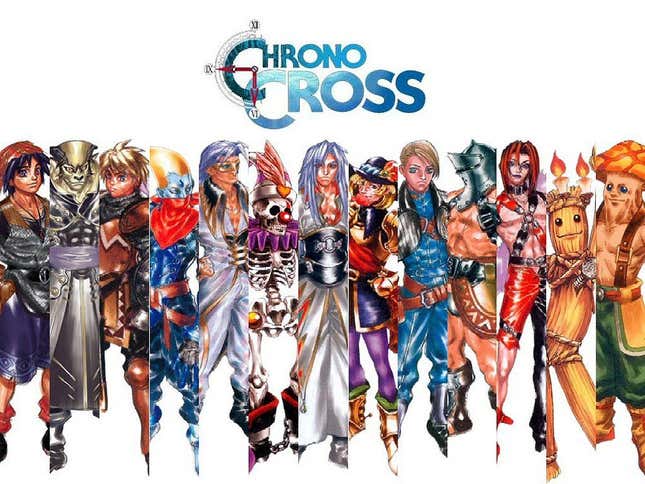
Chrono Cross is in many ways one of the most underrated JRPGs in the gaming industry, due in part to the comparisons it has made to its predecessor, Chrono Trigger.
Chrono Cross is a dark, contemplative work that explores fate, destiny, and choice in a more philosophical way than Trigger. Cross lacks the quirky humor that Dragon Quest’s Yuji Horii usually brings, or the anime aesthetic of Akira Toriyama (replacing Nobuteru Yuki). Instead, Cross presents us with a complex pair of worlds connected by Angelus Erare (“where angels get lost”). Not only do you have to set aside your expectations, but you have to set aside Chrono Trigger almost entirely to appreciate how wonderfully Cross delivers.
Masato Kato, director and screenwriter of Chrono Cross, said in an interview on the official Mitsuda Yasunori website, “After the announcement of this Cross, I heard a lot of people say, ‘This is different.’ To be honest, I was very disappointed. Yes, the platform has changed. Yes, there were many parts that changed significantly compared to the previous work. But in my opinion, the point of Chrono Cross was to create a new Chrono with the best features and technology currently available. I did not intend to simply transfer the Trigger system to the PlayStation console. That is why I believe that Cross is Cross, not Trigger 2. ”
At the same time, it is the overlap between the games that has proven to be challenging and unsettling for players who bought Cross expecting a clearly related and traditional sequel. . The protagonists of Chrono Trigger usually have a tragic ending. Crono and Marle get married, but things are no longer peaceful in the Kingdom of Guardia, implying that events took a violent turn shortly after the original game. Robo appears as a Prometheus Circuit, but is killed by FATE. The basic story revolves around the fate of Shara, princess of the heavenly utopia Zeal, who merged with Lavos. Her brother Magus was supposed to be a recruitable character, but was not recruited in favor of Guile. Lucca raised one of the main characters, Kid, in an orphanage, only for him to be killed by the villain Lynx. However, in a strange twist, Kid was actually a clone of Princess Shara’s daughter. Fate wasn’t kind to the Trigger characters.
Chrono Cross is not a continuation of their story. Rather, it’s a story about an entirely new character named Serge, who grew up in a fishing village in another part of the same world. In Serge’s normal timeline, he’s alive and well. However, in another parallel world he was sucked into, he died at sea. Here, the game is split into two different storylines. While Trigger is focused on exploring each of those eras, much of Cross’ genius lies in exploring the two alternate realities, traveling between both to understand the intertwined paths that connect the stories, as well as discovering what the differences are.
Another Me
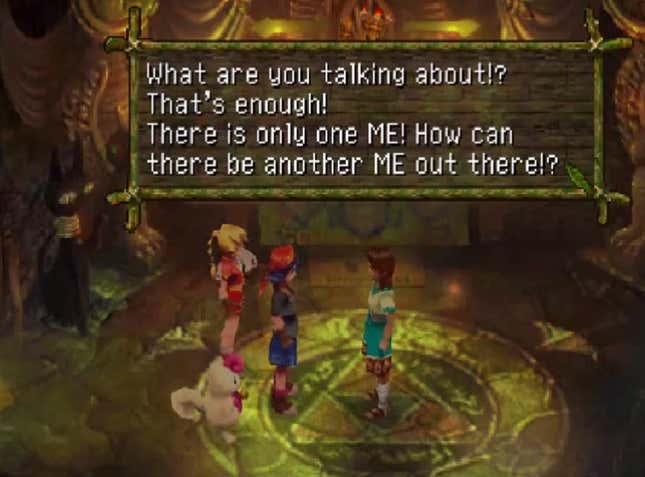
I think one of the things I didn’t like about Chrono Cross when I first played it was that the characters didn’t feel as deep or interesting as they did in Chrono Trigger. The Chrono Cross development team originally wanted every character in the world to be recruitable and have their own unique story. This proved to be very difficult to address due to the sheer scale. This ended up being 64 characters, each with a unique ending. To make it more manageable, this number was reduced to 45, as was the number of endings. The point is, Cross didn’t try to replicate the more personal and intimate adventure of Trigger. Cross was about a huge cast of characters and what their existence means, and how death and life affect the world around them.
If Cross had a character like Frog, he would be the human Glenn in one world, and the same warrior we know and love in the other. The story will focus less on Glenn’s relationship with Serge, and more on Frog’s relationship with the “other” him.
Admittedly, some characters in Cross seem like filler, like NeoFio, the flower child I adopted but never used again. Then there’s Lina, his childhood friend, who looks almost the same in both timelines.
But many of the works have very moving storylines that are different from the alternatives, and therein lies Cross’s strength. Zappa loses his son Karsh in his hometown and his business fails. In the alternative history, he is a successful blacksmith. Karsh himself has very different fates in the two timelines: in one he dies, in the other he is a warrior torn and haunted by his past deeds.
In another father-son relationship, Van Gogh becomes an unsuccessful painter in one world and a merchant to support his son Van in the other. Ironically, despite the two living comfortable lives, they become estranged because of each man’s emphasis on becoming a trader and making money. The conflict between artistry and the realistic pursuit of wealth is expressed in their very different lives. However, Serge and his friends learn from a maid that Van Gogh still collects paintings, secretly pursuing the creative dream he gave up long ago.
Many of the characters feel remorse, and Chrono Cross features several ghosts, both figurative and literal. The protagonists of Chrono Trigger act as a sort of Greek choir, informing Serge and his companions of past events from behind the scenes but never taking the lead, which is fitting symbolic of the relationship between Trigger and Cross.
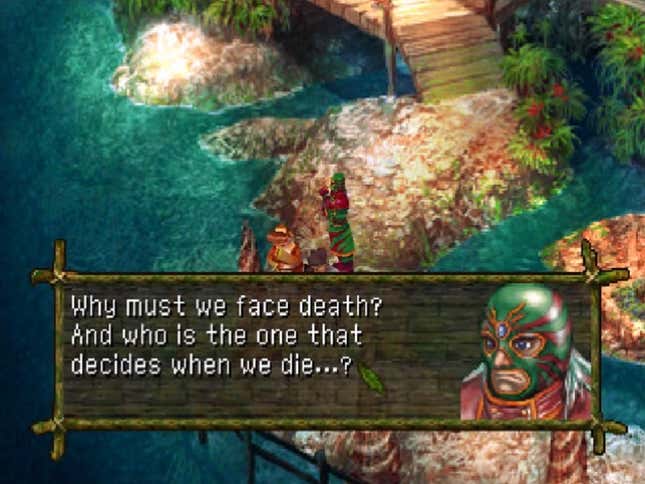
Original characters aren’t the only ones featured. When we first meet the wrestler Greco, he is holding a memorial service for his dead child. “Why do we have to face death?” he wonders aloud. “And who decides when we die…?”
After scouting Greco, he finds himself hiding from life after killing his friend Getz, and agrees to protect Serge from the darkness. Later in the game, Greco confronts the ghost of Getz. But instead of berating or criticizing him, Getz told him his grief would pass, while teaching him his final technique, the Grave Digger. Is it a coincidence that Greco’s most powerful moves involve moments of reconciliation and forgiveness? Chrono Cross’s recurring theme of healing in the face of mortality seems to prove otherwise.
Extinction Agenda
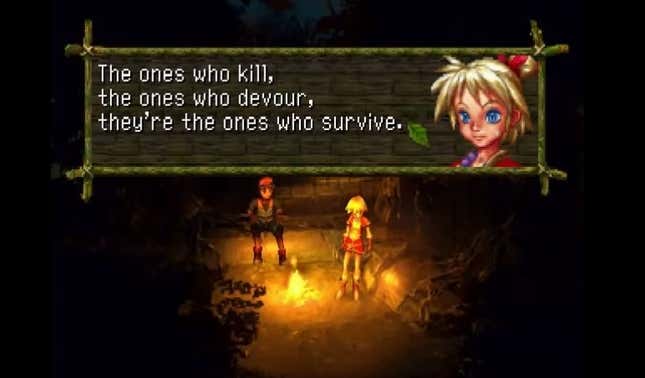
In Chrono Trigger, I felt guilty for causing the extinction of the reptilian species (I know that in the DS version, an entire village of reptilians actually survived, but some might say they were doomed by Lavos anyway). In Cross, Kid is poisoned by a Lynx, and the only way to save her is to obtain Hydra Humor, a potion that comes from the Hydra. The only problem is that in Another World, the Hydra are extinct and wiped out by humans.
In the normal world, there is only one Hydra left in Hydra Swamp. A group of Dwarves protect the last Hydra, knowing that its survival depends on it. The Hydra’s physiology purifies the water of the swamp, so its death means the end of life in the area. The Dwarves fight to protect them, but are no match for Serge and his allies. And neither is the Hydra.
The question arises: is Kid’s life more important than the lives of everyone else living in the swamp?
This is a kind of moral dilemma that pops up again and again throughout the game. In Chrono Trigger, there were moments when you questioned your actions, but for the most part, you were on the side of the law. Not so in Cross. This ambiguity is what makes the game so fascinating, especially when viewed through the warped prism of the “other world”. In what should have been a hopeful ending, Hydra turns out to be pregnant. But all I could think about was this lonely Hydra baby and the harsh fate that awaits it without its mother.
The dwarves were banished from the swamp because it could no longer sustain life there. They flee to Water Dragon Island, from where they conquer the fairy village. When confronted by the dwarf chief, he says: “You humans have taught us that the world is built on the corpses of other species.” And by “you humans” I specifically mean you. There are multiple actions here, but I reached the progression point where I defeated the dwarves and their hi-ho tanks, resulting in their deaths. Sad music plays and the chief asks himself: “Is there no land on this earth where we can live in peace?” Oh, goddess of fate, why have we been subjected to such a fate…”
Rosetta, the sister of one of the playable characters, is injured and the whole party is banned from ever entering the village again for causing the dwarves to attack. ‘You caused the attack in the first place. To make matters worse, I later found out in a FAQ that unless I actually tried to save Kid through Hydra humor, someone else would have given her the serum. I can’t imagine another story in which my actions would be justified. I was no hero. My death might have been good.
The Scars of Time
You can’t talk about Chrono Cross without mentioning the soundtrack. I can talk forever about Yasunori Mitsuda’s score, the best in gaming. She’s elegant, sassy, beautiful, full of sadness, and sometimes just majestic. It also perfectly complements Chrono Trigger’s OST, taking inspiration from older music. A true masterpiece, Cross’s music is the voice of the earth resonating through the “scars of time”. Narelle Ho Sang put together this beautiful list that captured many of my own emotions:
Transformation
The combat system is basically turn-based combat done to perfection, with a stamina bar that allows for exciting, fast-paced combat, all while tying together one of the catchiest tracks of any JRPG. I like the fact that you can run away from every fight. That goes for bosses as well as the final boss, the Time Eater. Once the fight is over, you have the option to automatically heal your party members without using consumables. Enemies also appear on the map, allowing you to avoid random battles. The element system is beautiful, and the final climax, “Chrono Cross,” adds a strategy element close to poetry to winning the entire game.
One of the most powerful fights begins in the second act. You face off against the arch-villain Lynx, whose visual style is inspired by the Aztec god of destiny, dark magic, and chaos. Just when you think you’ve defeated him, you end up body-swapped with Serge. This is another crossroads that changes the game in a totally unexpected way, somewhat reminiscent of John Woo’s film Face/Off. Like in that film, understanding how humans treat non-humans opens up another side of humanity. “The only pure thing in the world is hostility,” says the new Dark Serge.
You wake up in a space that resembles a Vincent van Gogh painting. The art is impressionist, a revisiting of a world you thought you knew. And in what appears to be a recurring motif, Chrono from Chrono Trigger reveals that Links is actually Wazuki, your father, corrupted by the supercomputer FATE. Now that you have swapped roles with your father, interdimensionality takes on an additional level of complexity in a generational leap.
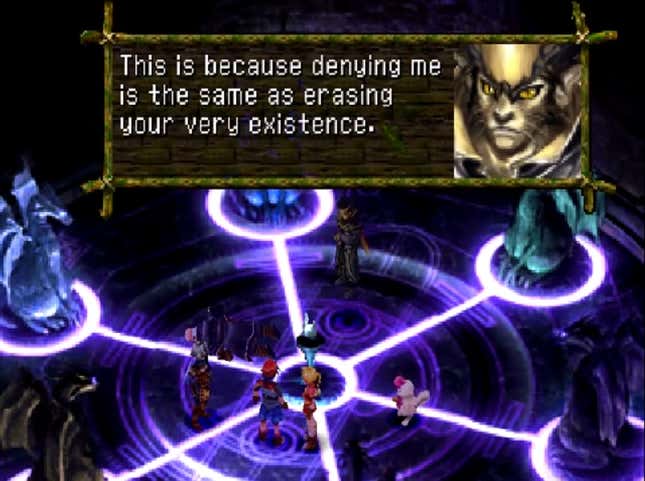
The philosophical implications are interesting too. You are always blamed for the sins of your father (e.g. when the dragon knight Radius challenges you to a fight), even when you are trying to shape your own destiny (Radius realizes that there is no malice behind his attacks and eventually joins you). Part of the atonement is to undo his actions by becoming Lynx and to regain your own identity after a long struggle.
In Joseph Campbell’s Hero’s Journey, this stage can be considered equivalent to “reconciliation with the father”. As Campbell says, “If it is impossible to trust the face of the terrible Father, one’s faith must be focused elsewhere (Spider Woman, the Virgin Mary) and by relying on this support, one will survive the crisis, but in the end, one will realize that father and mother are reflections of each other and are essentially the same. The problem for the hero who sets out to meet his father is to go beyond fear and open his soul wide so that the time is ripe to understand the abhorrent madness of this vast and pitiless cosmos and find its full justification in the majesty of existence.” The protagonist overcomes the blind spots inherent in life and, for just a moment, glimpses their roots: he sees his father’s face, he understands, and the two are reconciled.
Only through a twisted reconciliation can you redeem yourself, but only in this way can you become “master of two worlds” and make amends for the many mistakes you have made in the past. Time .
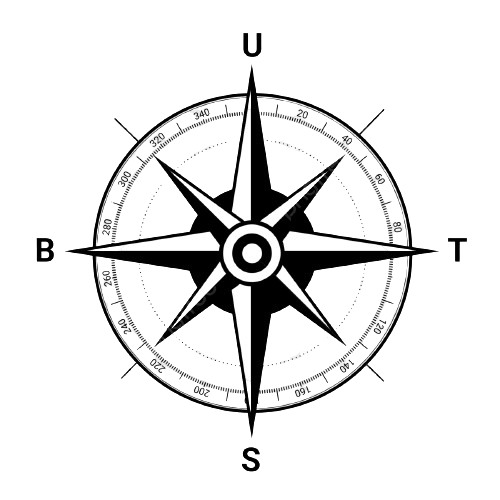
Leave a Reply